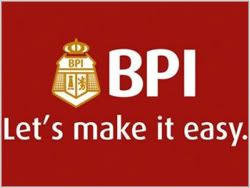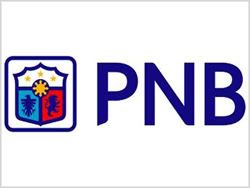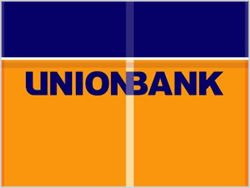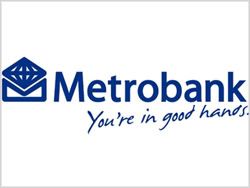| Once you have decided the property of your choice, your next move is to ask for a sample investment computation of this project. We understand that everyone's financing needs are distinctive.
We are dedicated to providing you with different investment plans and personalized services that best meet your individual requirements. Here are some basic information and guides that can help you decide which payment option is best for you.
DIFFERENT INVESTMENT PLANS AVAILABLE
|
Investment plans vary on a per-project basis. Typical payment schemes include cash, deferred cash, (with a certain percentage due for initial investment and the balance payable within certain months), in-house financing (with a certain percentage due for initial investment and the balance payable within 1 to 10 years, subject to in-house approval), and bank financing (with a certain percentage due for initial investment from the buyer and the balance financed by the bank, payable up to a maximum of 25 years, subject to bank approval).
|
APPLYING FOR IN-HOUSE OR COMMERCIAL FINANCING
|
Investing in your dream home and paying for its mortgage won't be such a big problem if you know the options and the difference between home investment like bank financing and in-house financing.
Requirements, policies, rules & regulations may differ among property developers or commercial financing institutions governing home financing; but learning about general advantages or disadvantages of the two options available will help you in deciding which is right for you based on your needs and capacity to pay.
Here is a step-by-step guide for easy application.
|
IN-HOUSE FINANCING
|
 |
For in-house financing, financing is extended by the company who is selling the property. Under this scheme, there is no transfer of ownership to the buyer until the property is fully paid.
If you are interested in securing in-house financing,
- Gather information about your savings and monthly cash profile.
- Having an idea of your funding resources, estimate what kind of a property you can afford, how much you can borrow, how much you can afford to pay on a monthly basis.
|
Typical factors affecting evaluation and approval of a request for in-house financing include the following:
- Proof of monthly or periodic net cash inflow
- Size and quality of assets and investments currently owned
- Tenure with the employer or number of years in business, in case of a professional or an entrepreneur.
ADVANTAGES:
- Faster Processing Time
- Less Strict Requirements
The developer will take less time in approving your application and might ask for lesser documents than the bank. Once you have paid the required reservation fee and submitted the documents, you are set.
- Lower Initial Investment
The required downpayment is usually lesser, at most 10% of the total value of the property
DISADVANTAGES:
- Higher Interest Rates
The property developer will most likely charge higher interest rates than the average rate being charged by the bank. This also depends on your equity, the higher the equity, the lower the interest rates.
- No transfer of ownership
Under an in-house financing scheme, ownership of the property will only be transferred to the buyer upon full or complete payment of the total amount.
|
BANK FINANCING
|
 |
For bank or external financing, financing is extended by a bank or financial institution. Under this term, ownership of the property is transferred to the buyer. The buyer in turn mortgages the property to the bank. This is typically covered by a Deed of Mortgage.
If you are interested in securing bank financing,
- Gather information about your savings and monthly cash flow.
- Estimate what kind of a property you can afford, how much you can borrow, how much you can afford to pay on a monthly basis.
|
Typical factors affecting evaluation and approval of a request for bank financing include the following:
- Proof of monthly or periodic net cash inflow
- Size and quality of assets and investments currently owned
- Tenure with the employer or number of years in business, in case of a professional or an entrepreneur.
ADVANTAGES:
- Lesser Interest Rates
The rates being charged by the bank is often lesser than in-house financing by developers because banks as financial institutions enjoy the benefits of economies of scale. But you must be aware that banks often offer fixed interest rate for a period of 1, 5, 10, 15, 20, or 25 years with repricing rates so don't left out this important detail when talking with the loan account officer.
- Transfer of Property Ownership to the Buyer
Under this scheme, the title or ownership to the property is already transferred to the buyer. It is the buyer now who mortgages the property to the bank or financing institution.
DISADVANTAGES:
- Processing may take longer.
An application for bank financing is typically evaluated within a period of two weeks to one month. This timetable assumes complete documentation and solid evidence presented to support the various factors being used for evaluation. Length of processing may be prolonged by incomplete documents or insufficient evidence of capacity to pay.
- Higher equity at 20% – 30%
- Stringent documentation requirements.
Banks often require complete submission of many documents. But if you do choose bank financing over in-house financing, you need to set an appointment with a bank account officer in-charge of housing loans and inquire about the necessary pre-processing documents you need to prepare.
- There's additional fees needed to settle.
There are processing fees (appraisal fees ranges from Php. 3,500 – Php. 5,000 and bank charges) that need to be paid for as part of the application. The bank charges approximately 3% of the loanable amount, it covers notarial fee, registration expenses, documentary stamps, handling fee & insurance
|
BANK PARTNERS
|
|
|
|








Walang komento:
Mag-post ng isang Komento